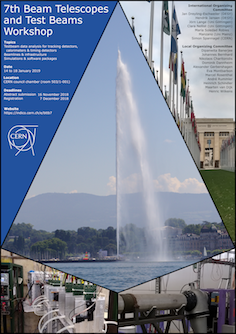Speaker
Description
During its first run, in the period 2014-2018, the CERN Proton Irradiation Facility (IRRAD) in the PS East Area has been heavily used for performing irradiations of particle detectors, electronic components and materials. More than 2500 elements were tested and irradiated during this run. During the Long Shutdown 2 (LS2) from 2019 to summer 2021, the IRRAD facility will undergo several upgrades in order to cope with the increasing demand for irradiation experiments required to complete the activities related to the High-Luminosity upgrade of the CERN Large Hadron Collider (scheduled during LS3). In this talk, we will present the planned modifications and upgrades in the global IRRAD infrastructure, but also the current work in progress performed within the AIDA-2020 project. Specifically, we will show the new IRRAD Data Manager System that is used to follow up the overall irradiation experiment procedure and operation. The presentation will also include details about the current irradiation tests and results of a new enhanced version of the currently used beam diagnostic in IRRAD, the Beam Profile Monitor (BPM). Moreover, the results of calibration measurements performed with Xe (2017) and Pb (2018) ion beams in IRRAD will be discussed in order to evaluate the possibility of providing to the users community Heavy Ion beams in IRRAD after LS2. These upgrades will allow for a more efficient and comprehensive operation of the IRRAD facility after LS2.




